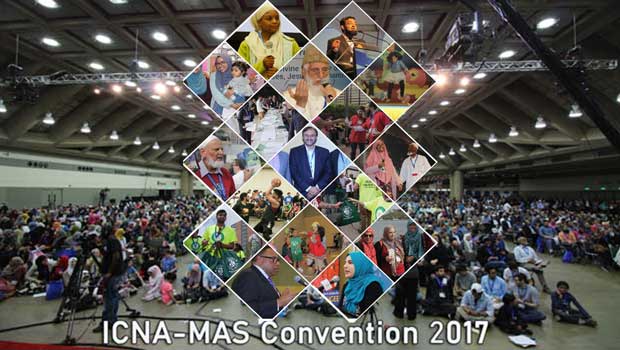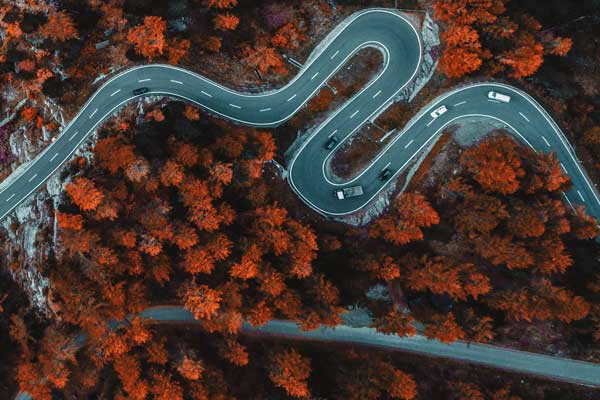Volunteerism is the willingness to spend one’s resources in the way of Allah SWT without looking for rewards from anyone except Allah SWT. This is part of our Deen, hence an act of worship (ibaadah) and we are highly encouraged to spend what Allah SWT has blessed us with for His sake. In fact, Islam was spread by volunteerism starting from the house of Abul Arqam ibn Abil Arqam to the migration to Al-Madinah, as well as in every confrontation with the Quraish.
Such a noble concept is volunteerism that even those who do not believe in Divine guidance know just by their fitrah (human nature) that it is a great virtue. The world community honors many volunteers with the Nobel Peace Prize for their work in various causes for the betterment of humanity. These include the right of all children to education, working toward social justice worldwide, advocating for peace and reconciliation based on respect for the rights of indigenous people, and so much more. But nowhere can one find volunteerism being given so much importance as in Islam. Indeed, it does not only bring benefits and blessings in this world but also the true reward with Allah SWT in the Hereafter. Allah SWT says in Surat Ar-Rahman in verses 60-61: “Is the reward for good and excellence [anything] but good and excellence? So which of the favors of your Lord would you deny?”
Doing Good for the Sake of Allah SWT
Consider the intention of doing good in order to seek Allah’s countenance (wajhilaah) or approval. In the Quran, Allah SWT commends those who feed others voluntarily, even though they would wish to keep the food for themselves. He SWT says: “And they give food, in spite of their love for it, to the poor, the orphan, and the captive, [saying] ‘We feed you seeking Allah’s Countenance only. We wish for no reward, nor thanks from you’” (76: 8-9). Consider also, for example, the word “ithaar,” which means the preferring of others above oneself. Allah SWT says in 59:9: “And those who, before them, had homes [in Al-Madinah] and had adopted the Faith, love those who emigrated to them, and have no jealousy in their breasts for that which they have been given, and give them preference over themselves, even though they [themselves] were impoverished. And whoever is saved from his own covetousness, such are they who will be the successful.” This verse was revealed after an incident that took place in the time of the Prophet (pbuh).
Abu Huraira narrated: “A man came to the Prophet as a guest. The Prophet sent a messenger to his wives [to bring something for that man to eat] but they said that they had nothing except water. Then Allah’s Apostle said, ‘Who will take this [person] or entertain him as a guest?’ An Ansar man said, ‘I (will).’ So he took him to his wife and said to her, ‘Entertain generously the guest of Allah’s Apostle.’ She said, ‘We have got nothing except the meals of my children.’ He said, ‘Prepare your meal, light your lamp, and let your children sleep if they ask for supper.’ So she prepared her meal, lighted her lamp, and made her children sleep, and then stood up pretending to mend her lamp, but she put it off. Then both of them pretended to be eating, but they really went to bed hungry. In the morning the Ansari went to Allah’s Apostle who said, ‘Tonight Allah laughed and marveled at your action.’ Then Allah revealed: ‘…And [they] give them [emigrants] preference over themselves even though they were needy. And whosoever is saved from the covetousness of their own souls, such are they who will be successful” (Bukhari). The verse referred to in the hadith is Surat al-Hashr, 59:9.
The highest level of volunteerism, according to the concept of ithaar, is when one volunteers and sacrifices his life to save others. In the Battle of Yarmuk many of the Sahaabah (may Allah be pleased with them all) were wounded. Huzayfah al-Adawi narrated the following: “On the day of the battle of Yarmuk, I went out to find my uncle on the battlefield, and I had with me a container of water. I said to myself that if he had some life left in him, then I would quench his thirst with the water and wash the dirt from his face. Suddenly, I came across him, and he was going in and out of consciousness. I asked him, ‘Do you want me to give you some water?’ He nodded his head. Suddenly, he heard another wounded man in the distance calling out in pain. So my uncle motioned for me to go tend to him. I went to him and saw that he was Hisham, the brother of Amr bin al-‘As. I came to him and asked if he wanted me to give him some water, and suddenly, we heard the sound of another man calling out in the distance in pain. So he motioned for me to go tend to him. I came to him to find that he had already died. So I went back to tend to Hisham only to find that he had died as well. Then, I went back to tend to my uncle only to find that he, too, had died.”
The ultimate goal of volunteerism is to gain the mercy and pleasure of Allah SWT. We don’t know which of our acts of volunteerism may cause us to enter Jannah by Allah’s mercy. But we are sure that whatever we do for the sake of Allah SWT, He will reward us for that bountifully. Allah says in The Quran: “Say: ‘Indeed, my Lord extends provision for whom He wills of His servants, and [also] restricts [it] for him. But whatever thing you spend [in His cause], He will compensate it; and He is the best of providers” (34:39). We must know that volunteerism has many different channels and opportunities. There are those who only can volunteer some time for Allah’s sake, some can volunteer by offering their skills or talents, others their knowledge, and some simply their energy and willingness to serve. But whatever one possesses, he should be happy to utilize it to serve the cause of Allah SWT and we must know that nothing is left unnoticed or unpaid by Him. He (SWT) says in the Quran: “And be patient; verily, Allah does not allow to be lost the reward of the good-doers” (11:115).
Examples in the Stories of the Prophets
In one of the many beautiful stories in the Quran about voluntary doing of good is the story of Prophet Musa (peace be upon him). Allah SWT gives much detail explaining an act of kindness done by one of the greatest human beings. After Musa (pbuh) struck a deadly blow to a Coptic in the process of helping an oppressed man from Bani Israel, he fled Egypt. He learnt that Pharaoh and his army wanted him and he knew the consequence would be severe. So he fled to Madyan (Northern Arabia). Allah SWT mentions in the Quran: “And when he directed himself toward Madyan, he said, ‘Perhaps my Lord will guide me to the sound way’” (28:22). It must have taken him several days or weeks of a grueling journey. So he finally arrived at Madyan tired and hungry, with nowhere to go. Then he saw the well of Madyan and tried to get closer to get some water. But he found something interesting: “And when he came to the well of Madyan, he found there a crowd of people watering [their flocks], and he found aside from them two women driving back [their flocks]…” (28:23).
Musa (pbuh) felt that this could not be right, that these two women had to withdraw their flocks. He mustered some courage and asked them: “…‘What is your circumstance?’ They said, ‘We do not water until the shepherds dispatch [their flocks]; and our father is an old man’” (28:23). He immediately realized that these two women were forced by their life circumstances to bring their flocks to water and now they are being forced away from the watering place by the men. So right away he took action and watered their flocks, out of kindness and consideration, and afterward turned to Allah SWT for help. Allah SWT describes that moment: “So he watered [their flocks] for them; then he went back to the shade and said, ‘My Lord, indeed I am in need of whatever good You would send down to me’” (28:24).
These are the stories that ought to motivate us to do what needs to be done in helping others, and helping our organizations and communities for the betterment of all. It should be something that comes from deep within us. It comes instantaneously. As part of our faith, we should always ask the question: What next needs to be done and how can I help. We know the very famous quote from John F. Kennedy: “My fellow Americans, ask not what your country can do for you; ask what you can do for your country.”
The Blessings and Rewards of Volunteerism are Abundant
It should not be that in order to jump to action we need a long lecture on how or why to become volunteers and what the virtues and rewards are. And, yet, the blessings are abundant. Rasoolullah (pbuh) said: “The dearest to Allah is the one who is most beneficial to people. The dearest deed to Allah is bringing happiness to a Muslim, or dispelling a grief from him, or settling his debt, or feeding him while he is hungry. It is dearer to me to support my Muslim brother to satisfy his need than to make one month itikaf (worship in spiritual retreat) in the masjid. Whoever controls his anger, Allah will cover his faults. And whoever goes out with a Muslim till fulfilling his necessity, Allah will make his feet stable on the Day when all feet shall slip.” He (pbuh) also said: “A Muslim is a brother of another Muslim, so he should not oppress him, nor should he hand him over to an oppressor. Whoever fulfills the needs of his brother, Allah will fulfill his needs; whoever brings his [Muslim] brother out of a discomfort, Allah will bring him out of the discomforts of the Day of Resurrection, and whoever shelters a Muslim, Allah will shelter him on the Day of Resurrection.”
All Prophets whom Allah SWT sent as examples for mankind were volunteers and they emphatically stressed the need for volunteerism. They all came with the message to their people: “And I do not ask you for it any reward. My reward is only from the Lord of the worlds” (Quran, 26:109). Indeed, the volunteers who spend their resources for Allah’s sake will find their reward in the hereafter; they will also find the deepest satisfaction in this world, and in the eyes of Allah SWT they will be the dearest.
Community
The Value of Volunteerism in the Sight of Allah






